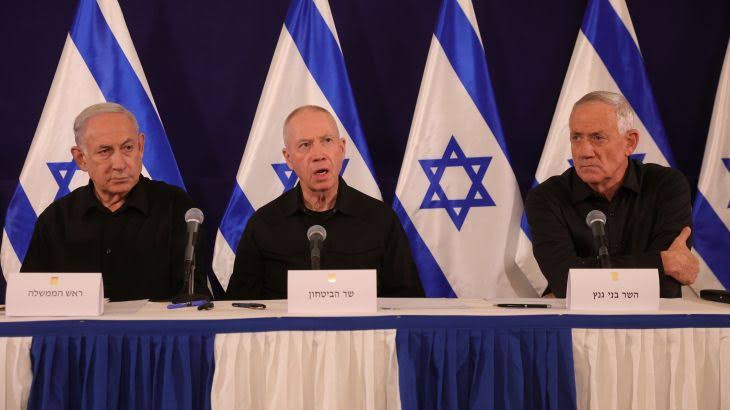Israeli military intelligence chief resigns amidst Gaza bombardment

Israel’s military intelligence chief, General Aharon Haliva, has resigned following the catastrophic intelligence failure that led to the Hamas attack on October 7, marking the beginning of the Gaza conflict. This move comes as Israeli forces continue intense shelling across the Gaza Strip. General Haliva is the first high-ranking Israeli official to resign over the intelligence lapses, as both the government and military face heavy criticism.
In his resignation letter, General Haliva admitted to not meeting expectations in preventing the attack. “The intelligence division under my command did not live up to the task we were entrusted with,” he wrote. This failure has drawn significant scrutiny and questions about Israel’s preparedness leading up to the attack, which ignited the ongoing war in Gaza.
Meanwhile, Israel has condemned reports suggesting that its close ally, the United States, might sanction the ultra-Orthodox Netzah Yehuda battalion due to alleged human rights abuses in the West Bank prior to the current conflict. Prime Minister Benjamin Netanyahu expressed strong disapproval, calling the idea of sanctioning an Israeli military unit “the height of absurdity and a moral low.” This reaction underscores the sensitivity of international perceptions of Israel’s military actions during a time of intense combat.
As Israel’s military continues its operations, Prime Minister Netanyahu has announced an increase in military pressure against Hamas, with promises to inflict “additional and painful blows” in the coming days. While he did not provide further details, this escalation has raised concerns over the humanitarian crisis in Gaza, with reports of significant destruction and civilian casualties due to the ongoing shelling.
In addition to ongoing military operations, Israel is also confronting growing global opposition to its offensive in Gaza, which has resulted in significant destruction and a humanitarian crisis. The intense bombardment has caused widespread damage, and international observers are raising alarms about the impact on civilians. According to local reports, Israeli strikes injured at least six people in the Al-Aqsa Hospital area, and three more were injured in the Al-Bureij refugee camp.
The Israeli military’s planned ground assault on Rafah, the southernmost city in Gaza, has drawn criticism from international communities due to the potential for large-scale civilian casualties. Despite this, Israel asserts that Rafah is Hamas’s final major stronghold and that hostages taken during the October 7 attack are believed to be held there. As the conflict continues, global attention remains focused on the humanitarian crisis and the fate of the hostages in Gaza.












